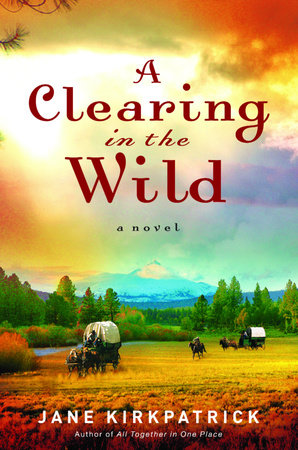A Clearing in the Wild Reader’s Guide
By Jane Kirkpatrick


1. How would you characterize the role of women within the Bethel colony? What changes occurred in the Willapa Valley that redefined the role of the women? Who or what brought about those changes?
2. It’s said that feeling unique and being acknowledged for that uniqueness is a prerequisite for a healthy sense of self. Do you agree or disagree? Can you identify something that is unique about you? Has that gift/talent/behavior/ ever been noticed by others? Is receiving appreciation for that recognition an act of vanity? What was unique about Emma?
3. After their marriage, why didn’t Emma attempt to go with her husband on his recruiting into Kentucky or other places in the Southwest? If she had, would that have changed her desire to go west with the scouts?
4. Was Emma’s decision to travel to the west with the scouts an act of love for her husband or her own wish to be independent of the colony? Was she a scout?
5. What were some of Wilhelm Keil’s strengths as a leader? How did he hold so large a colony together for such a long time? What were his faults as a leader?
6. What did Wilhelm and Emma have in common? Did those qualities tend to help them or get in their way of what they said they wanted for themselves and their families?
7. What were some of Emma’s growing pains? Was leaving her husband while they were building that first winter her only choice? How might she have accomplished the same result with different actions?
8. What do you think the German proverb “Begin to weave / God provides the thread” means?
9. What tied the Bethel colony together? What held the Willapa scouts together? What threats worked against the success of the Willapa colony? Are there similar threats to communities of faith today? What helps them continue on?
10. Are there any parallels in our contemporary time to what Emma refers to when she says, “It was an intricate task blending isolation with protection; melding worldliness with spiritual calm”?
11. What was the Diamond Rule practiced by the Bethel colony? Is such a rule substantiated scripturally for Christians? Other world faiths? Did Wilhelm Keil demonstrate the Diamond Rule in his reaction to the scouts at Willapa?
12. Did Emma manipulate Christian to remain in Willapa? Was her interest in staying on after their harsh winter an act of love for her husband, a desire to be free of the colony, or from a new belief that she followed God’s direction for her life? Do you think Emma would have remained in Willapa without Christian if he hadn’t agreed with the possibilities of her plan?
13. Why did Christian concur with Wilhelm about the need to leave the valley? What made Christian change his mind? Are there likely to be conflicts between Emma and Christian in the years ahead, and if so, what do you think will enable them to accommodate each other in helpful ways?
14. Though we see the other women in this story through the eyes of Emma, what are Mary’s strengths? Sarah’s? Louisa’s? Emma’s mother’s? her sister Catherine’s? Do these women change throughout the story, or are they static characters acting as backdrops for Emma’s choice and change?
15. Toward the end, the author has Emma identify four spiritual pains* that she sees plaguing her husband, keeping him from seeking healing solace and from making the choice that Emma hopes he will: hopelessness, unforgiveness, separation from those who love him, and lack of meaning. What examples of Christian’s behavior does the reader have that help define these four areas of Christian’s struggle? How does Emma attempt to help him throughout their marriage?
*These four spiritual pains are described in greater detail in The American Way of Dying, Lessons in Healing Spiritual Pain by Richard Groves and Henriette Anne Klauser, published by Celestial Arts, Berkely, CA 2005.
Just for joining you’ll get personalized recommendations on your dashboard daily and features only for members.
Find Out More Join Now Sign In